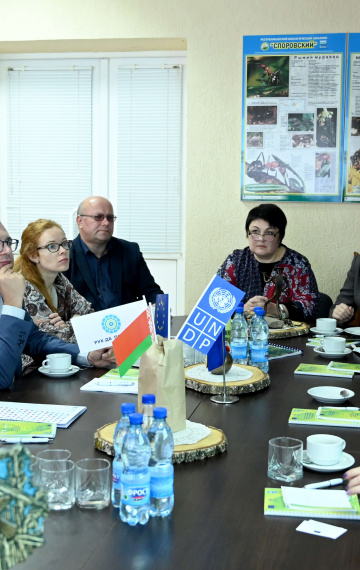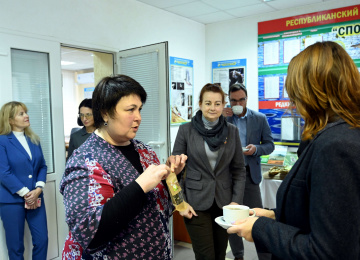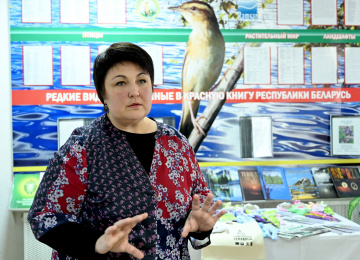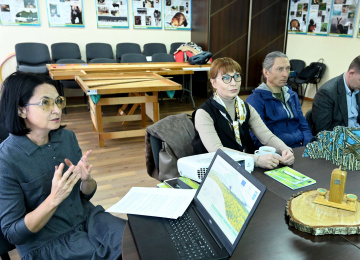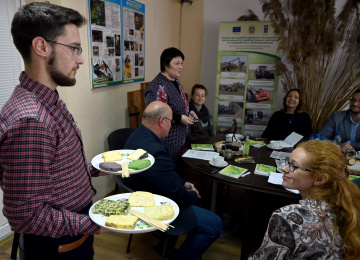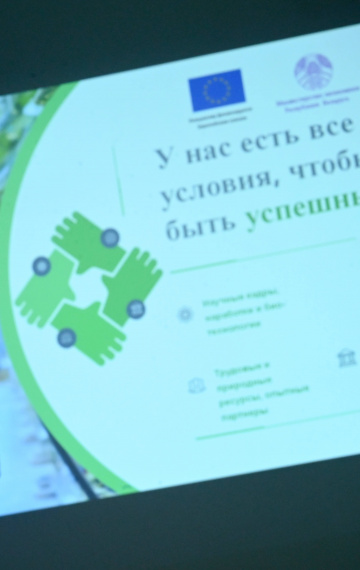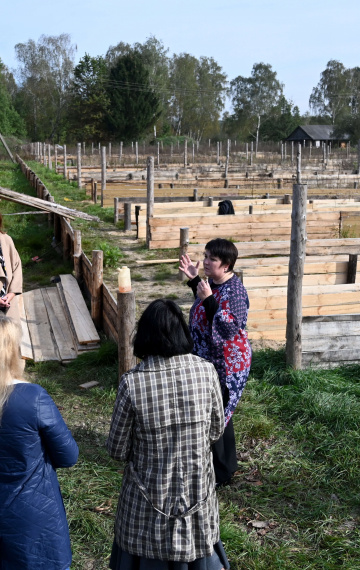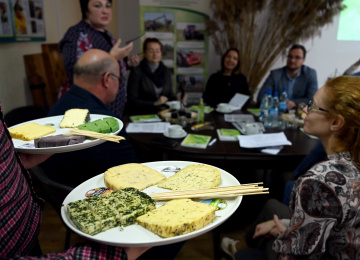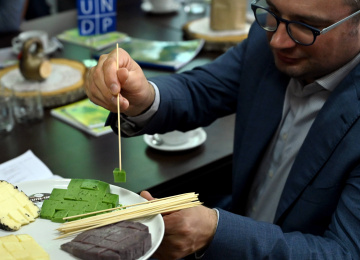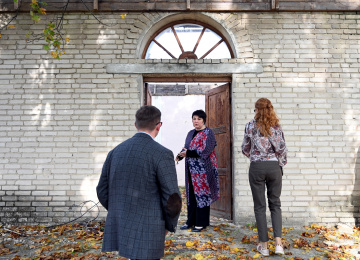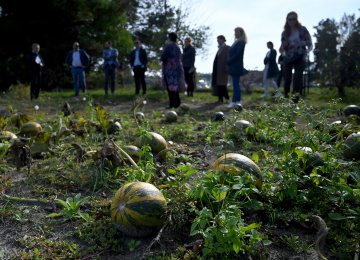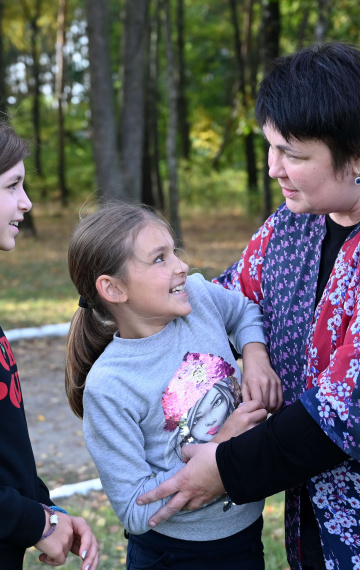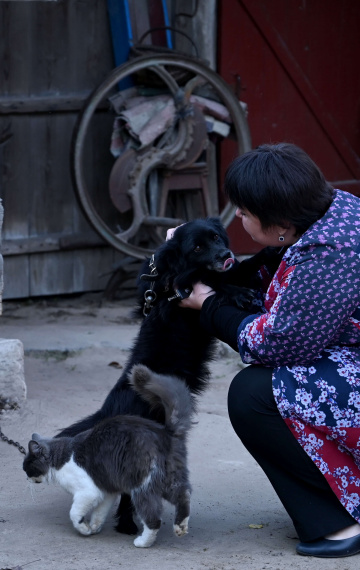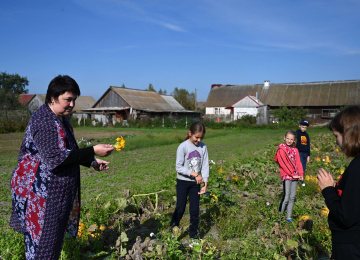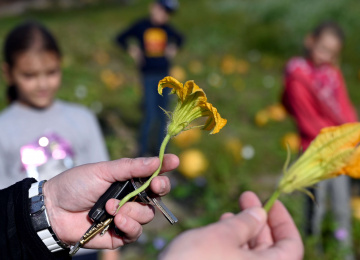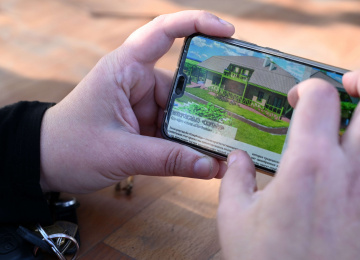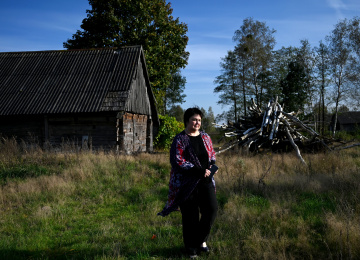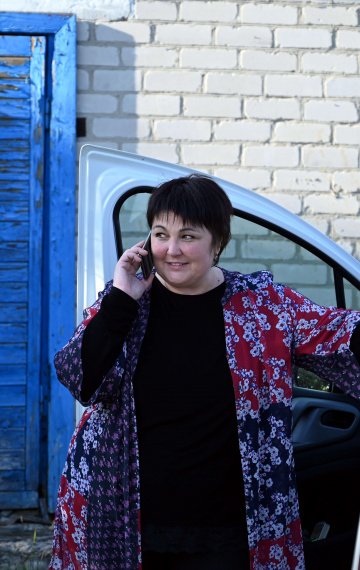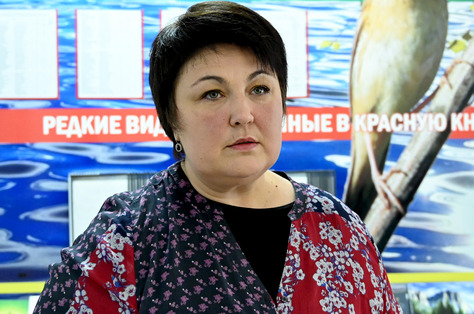
Natalia Strok, Director of the Vysokovsky Ecological and Ethnographic Center, a social and cultural institution in Belarus, starts her day very early: she answers calls from partners and clients whom she advises over the phone, and goes to their secondary plots, delivering seedlings, seeds and equipment. Strok’s work is helping local residents to start a farm business in spite the pandemic and economic crisis.
Rural residents are one of the most vulnerable groups when it comes to poverty. According to the BEROC Economic Research Center, the main causes of poverty for rural Belarusians are limited job opportunities and low wages—an average of 20% less than in the city.
Once COVID-19 hit, many businesses in the region went into crisis mode and even closed altogether. With employment opportunities outside the regions limited, finding new directions for business has become especially important for rural Belarusians.
In December 2019, as part of the “Support to Economic Development at the Local Level in the Republic of Belarus” project funded by the European Union as part of its EU4Business Initiative and implemented by the UNDP in Belarus in partnership with the Ministry of Economy, Natalia Strok opened an Agro-Eco-Entrepreneurship Support Center in Bereza County of Brest oblast. Through it, locals are offered free courses in innovative technologies, the principles of green economy, and the basics of business and financial literacy. In other words, Strok works to teach her fellow Belarusians to work the land in a way that will allow them to grow high-quality eco-friendly produce for themselves and for sale, even on small secondary plots.
The small business that Strok teaches her clients to engage in has considerable promise and impact on the economy as it generates new jobs, increases the number of self-employed, and develops agricultural marketing.
The Center provides seeds and seedlings, trains novice farmers in technology and innovations in crop production, and plans to help them to sell their produce in the future. Today, 15 residents of the county are already engaged in farming, using the seeds, seedlings, and knowledge they gained through the Center. A special nursery facility that is currently under construction is devoted to researching methods for growing and processing the seedlings of bushes and trees without using chemicals, and testing them in practice. Later on, these methods will be used by the Center’s clients.
Strok works with different age and social groups: pensioners, large families, people with disabilities, experienced farmers, and novice gardeners. She focuses on working with children and youth, because they are the future of the county, she says. Strok delivers an educational programme for schoolchildren at the Zditava Secondary School, where they have little plots to grow naked-seeded pumpkins and kalyna or guelder-roses for further sale.
Guelder-roses, naked-seeded pumpkins, Canadian blackberries and rosehips are just the beginning. Plans are to grow and harvest medicinal herbs for export to EU countries, to open a shared facility for the processing of harvested eco-friendly raw materials, and to generate jobs for people with disabilities and their families. Four people are already doing these jobs.
In the future, Strok plans to open an ecological and ethnographic park on 20 hectares of land as an eco-laboratory that will combine modern agricultural production, platforms for the research and implementation of innovative agricultural technology, training facilities, and infrastructure for ecotourism with new forms of recreation, using green energy- and resource-efficient technologies.
Natalia’s life story is quite fascinating. Born to an Austrian father and Belarusian mother, she could have lived in Austria. But she married a Belarusian and for some time she lived between the two countries. When her four children grew up, she finally returned to Belarus to share her rich experience and implement projects in her homeland. After all, she says, it is our native land that gives us strength, while helping others makes us feel satisfied and happy.
“I enjoy doing business, and I love working the land,” says Natalia Strok firmly. “So, for me this is like a hobby. I’m especially glad that I can introduce and teach innovative methods to my country folks. I’m sure that for many of them this will be a way out of the economic crisis, their main or extra income. We must strive to become doers. It’s time to put our knowledge and experience into practice. Even in difficult times, you always need to take at least one step forward, every day.”
